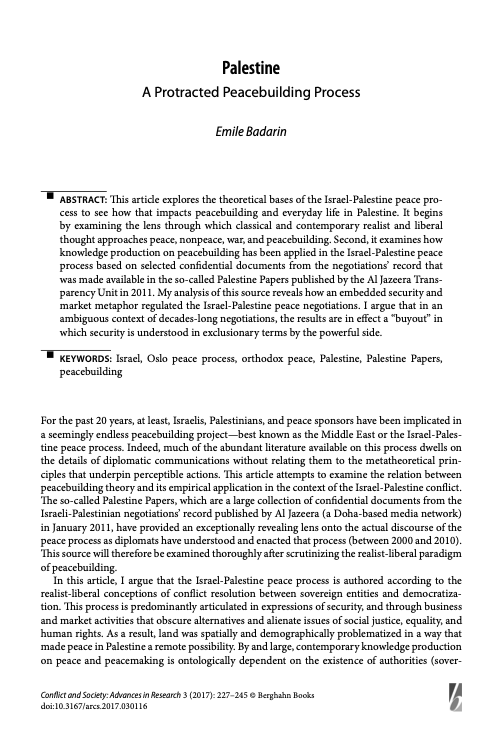This article explores the theoretical bases of the Israel-Palestine peace process to see how that impacts peacebuilding and everyday life in Palestine. It begins by examining the lens through which classical and contemporary realist and liberal thought approaches peace, nonpeace, war, and peacebuilding. Second, it examines how knowledge production on peacebuilding has been applied in the Israel-Palestine peace process based on selected confidential documents from the negotiations’ record that was made available in the so-called Palestine Papers published by the Al Jazeera Transparency Unit in 2011. My analysis of this source reveals how an embedded security and market metaphor regulated the Israel-Palestine peace negotiations. I argue that in an ambiguous context of decades-long negotiations, the results are in effect a “buyout” in which security is understood in exclusionary terms by the powerful side.
Cite as: Badarin, Emile 2017. “Palestine: A Protracted Peacebuilding Process.” Conflict and Society 3.1: 227-245.
